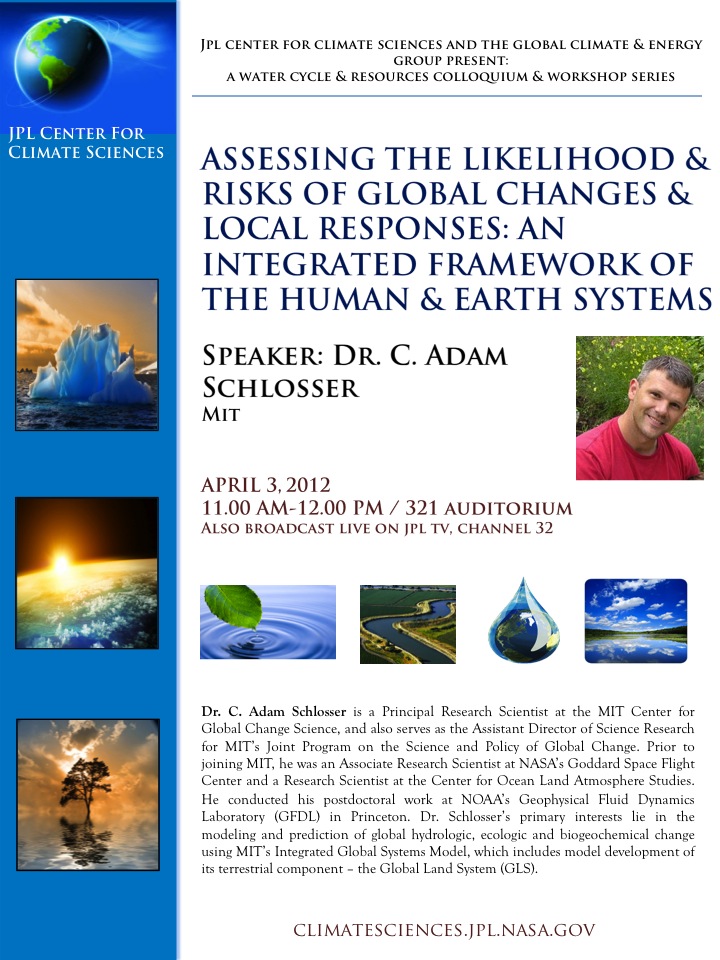Seminars
Assessing the Likelihood and Risks of Global Changes and Local Responses
Dr. C. Adam Schlosser, MIT
April 3, 2012 | Jet Propulsion Laboratory, 11.00 am-12.00 pm, 321 Auditorium
About this Lecture

Under the threat of potentially large climate change that will affect the natural and managed systems of our planet, it is increasingly important to quantify the likelihood (uncertainty) of global and regional outcomes and how this translates to risk-based assessments of impacts and adaptation. The MIT Integrated Global Systems Model (IGSM) is a modeling and analysis framework designed to represent the human and Earth systems, as well as their key linkages, to quantify such impacts and risks. Continuous development and evaluation of IGSM’s process-based modules requires novel and/or enhanced observations in key aspects of its prognostic and parametric expressions. Recent findings and assessments using the IGSM framework that quantify global and regional climate change likelihood, water-resource risks, as well as renewable energy resource and impacts will be presented. Observational needs will be highlighted in key areas in order to identify opportunities and strengthen the necessary relationship between observational evidence and model capability and reliability.
About Dr. C. Adam Schlosser

Dr. C. Adam Schlosser is a Principal Research Scientist at the MIT Center for Global Change Science, and also serves as the Assistant Director of Science Research for MIT’s Joint Program on the Science and Policy of Global Change. Prior to joining MIT, he was an Associate Research Scientist at NASA’s Goddard Space Flight Center and a Research Scientist at the Center for Ocean Land Atmosphere Studies. He conducted his postdoctoral work at NOAA’s Geophysical Fluid Dynamics Laboratory (GFDL) in Princeton. Dr. Schlosser’s primary interests lie in the modeling and prediction of global hydrologic, ecologic and biogeochemical change using MIT’s Integrated Global Systems Model, which includes model development of its terrestrial component – the Global Land System (GLS).
